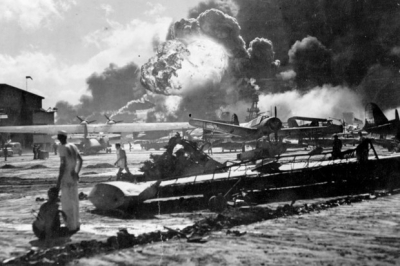
Worlds War II, also known as the Second World War, was fought I many countries between 1939 and 1945. The global war involved two opposing groups: the Allies and the Axis powers, France, Great Britain, the United States, the Soviet Union, and China constituted the Allies. The Allied powers were led by Winston Churchill (the U.K), Joseph Stalin (Soviet Union), Charles de Gaulle (France), and Franklin D. Roosevelt and Harry S. Truman (the U.S). The Axis powers were led by Adolf Hitler (Germany), Benito Mussolini (Italy), and Hideki Tojo (Japan).
What triggered the war?
The Second World War began in Europe on September 1, 1939, when German troops invaded Poland. Was it a continuation of the First World War? In a way, yes. The instability created in Europe and the economic depression worldwide as a result of WWI were major factors leading to WWI. Besides, Hitler had been waiting to regain territory lost after WWI, to unite all German- speaking people into one Teach in Europe. Hitler’s invasion of Poland forced Great Britain and France, which had promised support to Poland, to declare war on Germany.
Then Germany invaded the Soviet Union in June 1941, but soon found itself crippled by the Russian Winter. The war in the Pacific broke out in December 1941, when Japan, annoyed by the U.S. trade bans, attacked Pearl harbor, the American naval base in Hawaii, and other Dutch and British military installations throughout Asia.
When the war ended…
The war came to a close on September 2, 1945, when Japan formally surrendered. With Hitler’s death in April, Germany signed an unconditional surrender document. Mussolini was captured and hanged by Italian partisans.
With millions of soldiers and civilians losing their lives on account of the war, it was considered the largest and bloodiest war in history. The war saw the use of blitzkrieg tactics (a method of offensive warfare blending land and air action to achieve quick victory over adversaries), initially by Germany and later by the Allies, and devastating weaponry such as U-boat subs and atom bombs as a result of technological advancements.
The Holocaust
The deadliest conflict witnessed the Holocaust, the killing of almost six million Jews by the Nazis, and the Allied atomic bombings of Hiroshima and Nagasaki. The U.S, the Soviet Union, France and China emerged victors of the war, while Germany, Italy and Japan embraced defeat.
The war brought about a major shift of power in the world, with the United States and the Soviet Union emerging as superpowers. It also resulted in the end of colonialism in Asia and Africa. One of the significant developments in the port-war worlds was the formation of the United Nations to maintain international peace and security.
Picture Credit : Google

